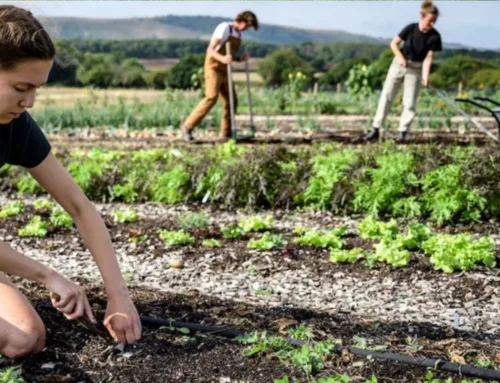When it comes to farming families, land isn’t just property—it’s the heart of the business, history, and future. So, when divorce enters the picture, things get complicated quickly.
Generational land disputes are some of the most high-stakes cases that farming divorce lawyers handle. They don’t just split assets; they protect a family’s legacy, work, and livelihood. These lawyers have to navigate not only the legal aspects but also the emotional weight that comes with dividing a lifetime of hard work tied to the land.
In high-conflict situations, their ability to balance legal expertise with sensitivity to the family’s unique needs is key to achieving a fair resolution.
How Do Farming Divorce Lawyers Handle Generational Land Disputes in Complex Cases?
Farming divorce lawyers face significant challenges when dealing with generational land disputes. These cases are often complicated by the deep emotional connections the family has to the land, as well as the complexities of land ownership that span several generations. Here’s how they navigate these complex issues:
- Understanding the History of the Land: One of the first steps in a farming divorce case involving generational land is to understand the history of the land. A lawyer must review the land’s history of ownership, inheritance, and any family agreements or deeds that were made over the years. This helps establish whether the land is considered a family heirloom, which could be treated differently than other types of property in a divorce.
- Establishing Legal Ownership: Often, generational farmland is passed down through multiple generations, and the legal ownership of the land might not be clear.
For example, one spouse may claim they have ownership due to a transfer of property or inheritance, while the other spouse might argue that they contributed to the upkeep and maintenance of the farm, creating a claim to joint ownership. Farming divorce lawyers investigate the legal documents that govern the ownership of the land, such as wills, deeds, and trusts, to clarify ownership.
- Negotiating Family Dynamics: Family dynamics play a significant role in farming divorces. The land may be the main source of livelihood, but it is also tied to family heritage and tradition.
A lawyer must navigate the sometimes emotional conversations surrounding the land’s legacy, as well as the potential conflicts with extended family members who may have a say in how the land should be divided. The lawyer may act as a mediator to reduce tensions and help families reach an amicable settlement.
- Valuation of the Land: In some cases, the couple may not agree on how to value the land. While some family-owned farms have been in the family for generations, their market value may not reflect the emotional value attached to them.
Farming divorce lawyers work with property appraisers to determine a fair market value of the land, taking into account both its agricultural value and any intangible assets, such as its sentimental or historic value. This ensures that both parties receive a fair share without unnecessarily jeopardizing the future of the farm.
What Legal Challenges Arise in Farming Divorces Involving Family-Owned Land?
When a farm is involved in a divorce, the legal challenges are often more complex than those in typical divorce cases. These legal challenges arise from both the nature of agricultural property and the intricacies of family-owned land. Here are some of the primary challenges:
- Determining Marital vs. Separate Property: The most common legal challenge in farming divorces is determining whether the family farm is considered marital property or separate property. Marital property is generally divided between spouses in a divorce, while separate property typically remains with the original owner. In family farms, however, this distinction can be blurry. For example, a farm that was inherited by one spouse before marriage may still have had significant improvements or income generated during the marriage. A lawyer must carefully assess the ownership history and contributions made by each spouse to determine whether the land should be treated as separate or marital property.
- The Role of Family Trusts and Wills: Many farming families set up family trusts or create specific wills to keep their land within the family across generations. This legal strategy can complicate the divorce process, as the terms of the trust or will may restrict how the land can be divided.
If a family trust exists, a farming divorce lawyer will need to evaluate the terms of the trust to determine if the land can be sold or transferred to one spouse. These types of legal instruments can prevent the land from being divided during a divorce, creating challenges for the court and the lawyer in reaching a resolution.
- Succession Planning: Generational farms often have a succession plan that designates who will inherit the farm when the current owner passes away. When a divorce occurs, the court may need to assess the impact of a potential divorce settlement on the future of the farm and its inheritance structure. The court will weigh the succession plan in light of divorce laws and may even override certain aspects of the plan if it’s determined that the division of property is unfair or violates legal principles.
- Ensuring the Farm’s Future Viability: In farming divorces, it’s not uncommon for one spouse to want to keep the farm running, while the other spouse may wish to sell it or take a cash settlement. The legal challenge here is ensuring the farm’s long-term viability.
The lawyer may negotiate solutions that allow the farm to remain in the family’s hands, such as a buyout agreement or a partnership arrangement. Alternatively, if the court orders the sale of the land, the lawyer must make sure that the proceeds are fairly divided.
How Do Courts Determine Ownership Of Farmland In High-Stakes Divorce Cases?
In high-stakes divorce cases involving farmland, courts must determine the ownership of the land based on a variety of legal factors. This process is often detailed and involves reviewing not only legal documents but also contributions made by both spouses over the course of the marriage. Here’s how courts generally approach this issue:
- Proof of Title and Ownership: Courts will begin by reviewing official property records, such as deeds and titles, to determine who is listed as the legal owner of the farmland. If one spouse inherited the land or received it as a gift, it may be classified as separate property, though the court will also examine whether marital funds were used to improve or maintain the property, which could affect its classification.
- Contributions to the Farm: Courts will assess each spouse’s contributions to the farm over the course of the marriage. This includes not only financial contributions but also labor and non-financial support. For example, a spouse who worked the land, cared for livestock, or helped with bookkeeping may have claims to ownership despite the legal title being in the other spouse’s name. Courts will weigh the contributions made by each spouse in determining how to fairly divide the property.
- Equitable Division of Property: In most states, divorce courts follow the principle of equitable distribution, meaning that property will be divided fairly, though not necessarily equally. The court may award the farm to one spouse if they can demonstrate that they contributed more to the farm’s operation or have a greater need to retain it. The court might also order compensation in the form of other assets or a buyout if the farm is sold.
- Value of the Farm: Another factor courts will consider is the value of the farmland. The market value of the land is an essential component in dividing the marital estate. Courts will consider appraisals to determine the fair market value and then use this information to ensure that both spouses receive an equitable portion of the farm’s value.
What Factors Influence the Division of Agricultural Property in Divorce Settlements?
The division of agricultural property in divorce settlements is influenced by a combination of legal principles, financial considerations, and personal factors. Key factors that influence the division include:
- Contributions of Both Spouses: As mentioned, the contributions made by each spouse—whether financial, physical, or managerial—are significant in determining how agricultural property is divided. A spouse who worked long hours on the farm, contributed to land improvements, or made substantial investments may be entitled to a larger share of the property.
- Financial Needs: Courts consider the financial needs of each spouse when dividing agricultural property. If one spouse is reliant on the farm for income and livelihood, the court may award them a larger portion of the farm’s value to maintain financial stability.
- Future Viability of the Farm: In some cases, the future viability of the farm is critical. If one spouse intends to continue farming, while the other does not, the court may find ways to keep the farm intact, such as ordering a buyout or facilitating a lease agreement.
- Tax Implications: The potential tax implications of dividing agricultural property are also crucial. The sale of farmland or the division of property can result in significant capital gains taxes, which need to be carefully considered during negotiations and settlements.
Farming divorce cases that involve generational land disputes are incredibly complex and require skilled legal counsel. Farming divorce lawyers play a critical role in navigating these high-stakes cases, ensuring that property is divided fairly while protecting the future of family-owned farms. From understanding the historical and emotional significance of farmland to negotiating property divisions that honor the contributions of both spouses, these legal professionals provide invaluable guidance to families facing the challenging intersection of divorce and agricultural property. If you’re facing a farming divorce, it’s crucial to seek experienced legal representation to help guide you through this intricate process.
Protect Your Legacy and Secure Your Future: Let Us Guide You Through Complex Farming Divorce Cases
At Ligon Business & Estate Law, we understand the unique challenges that come with divorce cases involving generational land and family-owned farms. Our expert team is here to help you navigate the complexities of property division and ensure that your interests are protected. Whether you need advice on maintaining ownership of your family’s land or negotiating a fair settlement, we are committed to guiding you every step of the way. Reach out today and take the first step towards securing your future.



